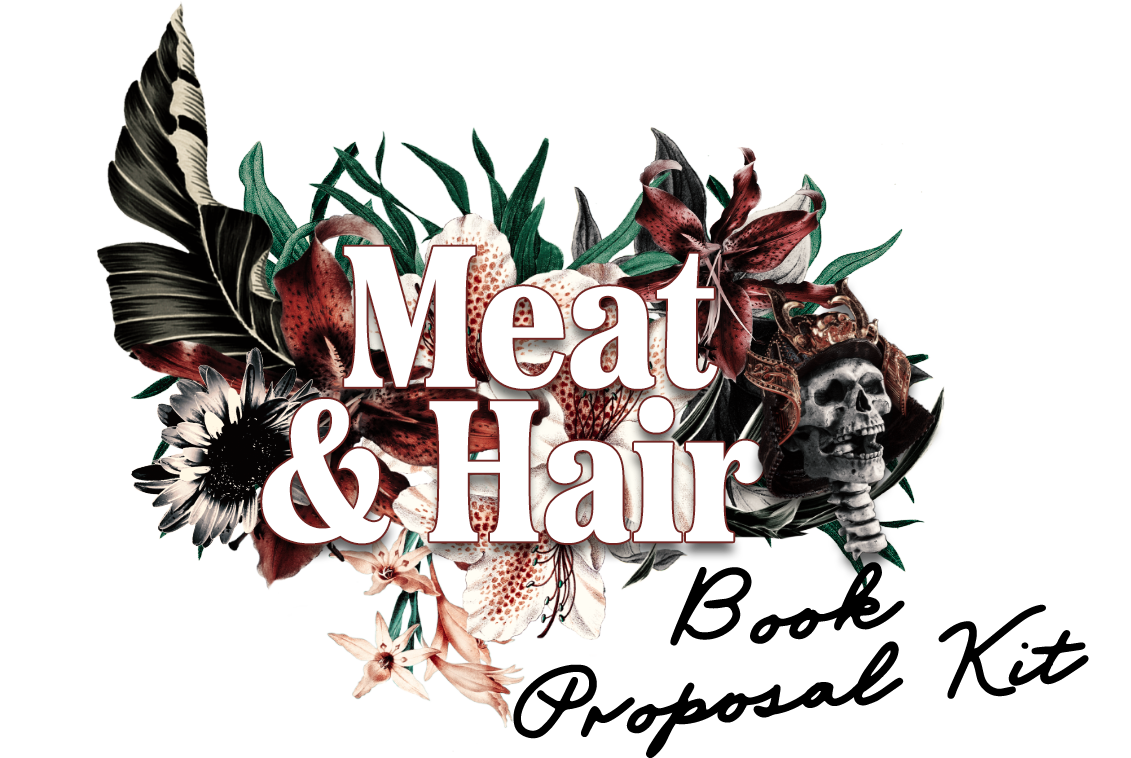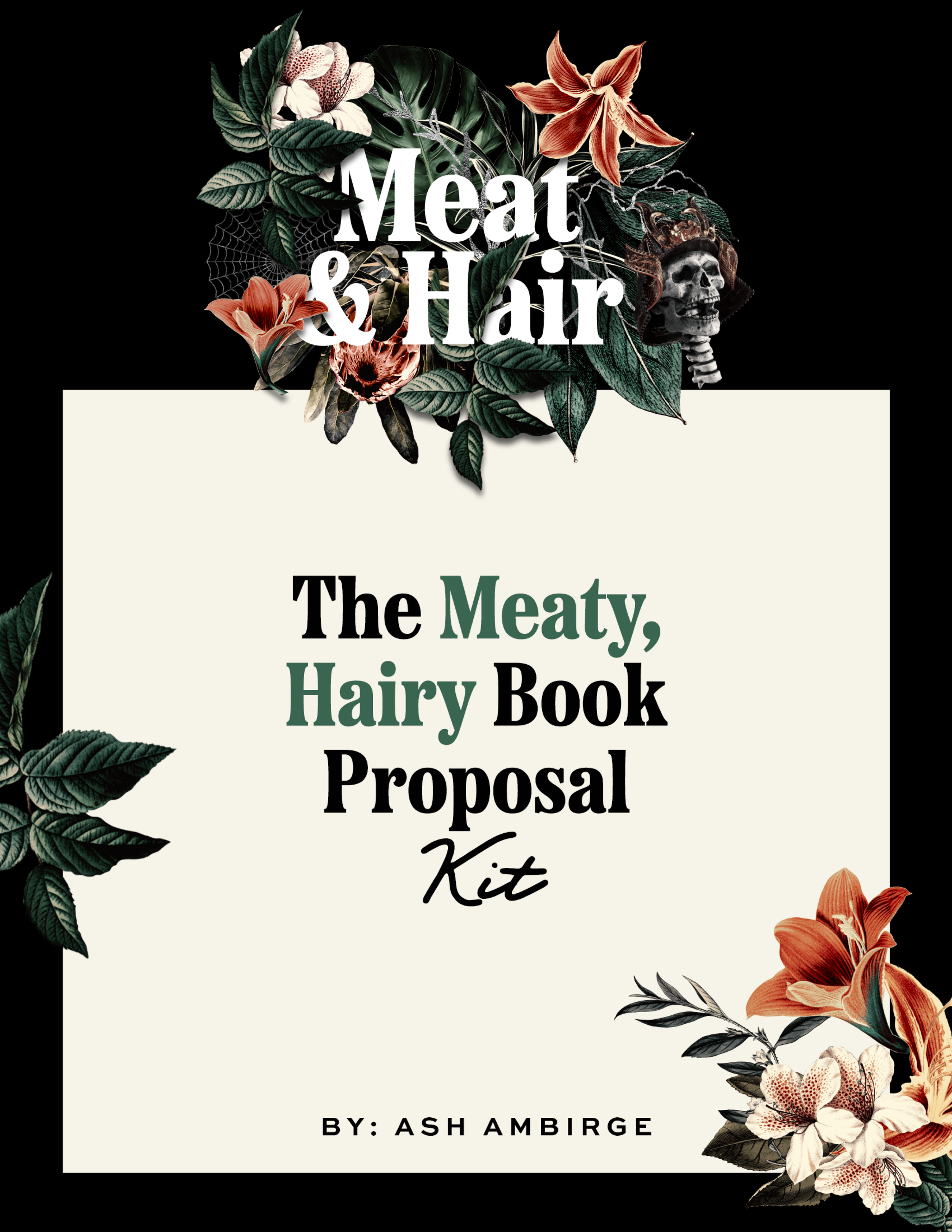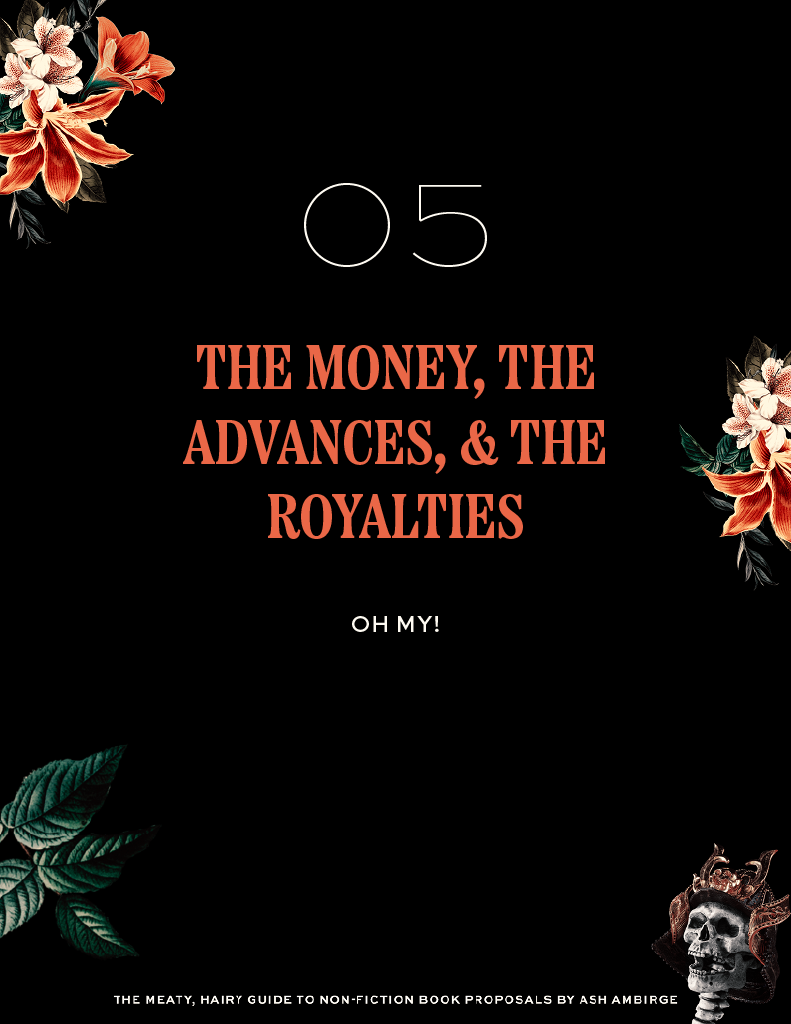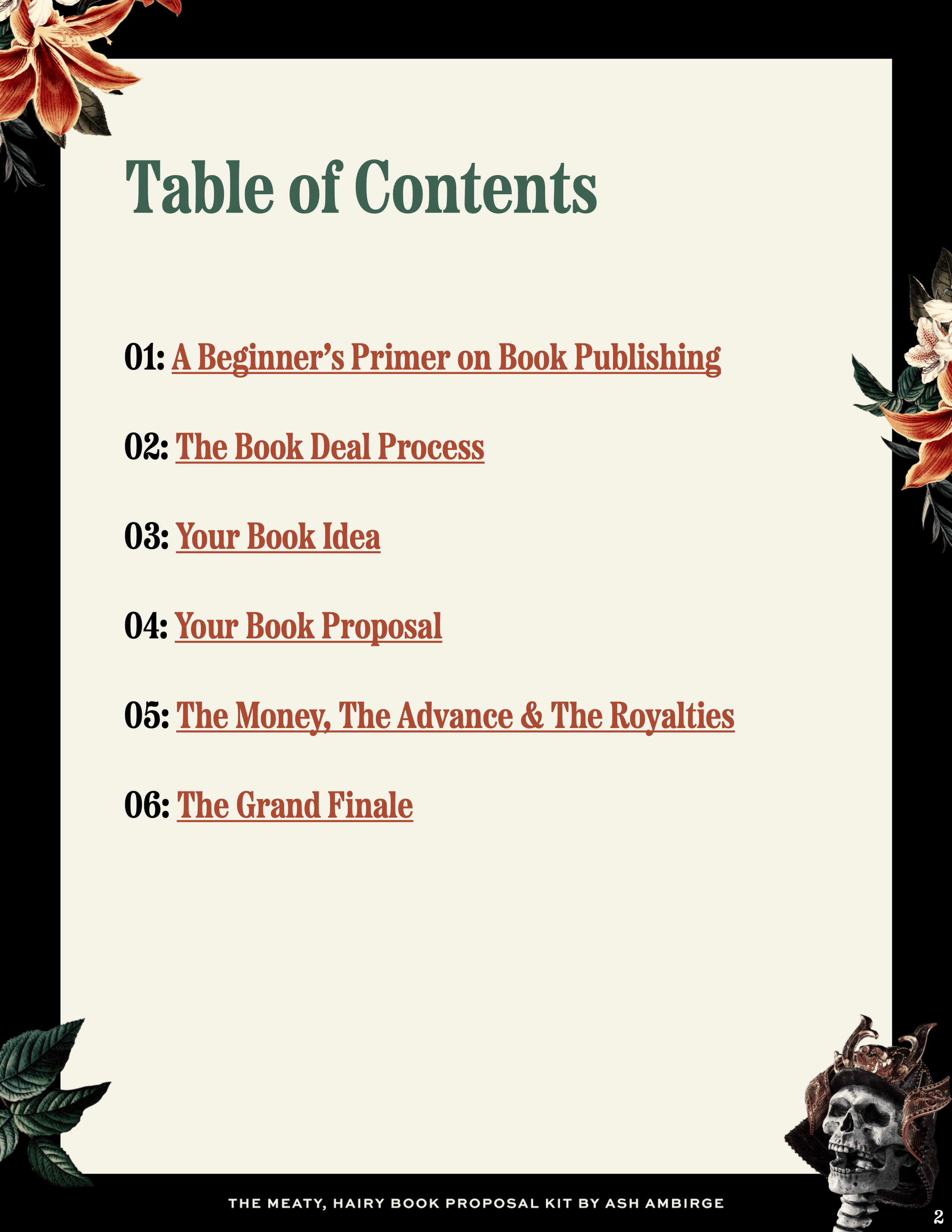
Get the Book Deal of Your Dreams
The Secret to Writing a Book Proposal That Agents and Big 5 Publishers Won’t Be Able to Resist
As a young writer, I would have wrestled a small bobcat to have someone on the inside tell me how they got their book deal and what advice they had to offer.
I remember Googling, "average book advance," and "book proposal advice" forty-thousand times, scouring the Internet for any sign of real, legitimate stories from real, legitimate people who could lend real insight into the process.
Instead, all I found were articles on how much James Patterson and J.K. Rowling make in a year (spoiler alert: A REAL BIG LOT), or how somebody from Kansas once got paid a pittance for their children's book from 1994. There were still so many questions that weren't being answered—at least with any degree of certainty. Did I need a proposal if my book was memoir? Or did I just need to just write the manuscript first? Or should I approach an agent first? And what did I need to approach them with?
A pitch? A proposal? A Hail Mary? What's the etiquette? How could I be sure my idea was a good one? Would I get their attention or be ignored? Did I have a big enough following? Did I need one? Did I even have a shot? (And, seriously, what about the advance?)
So you can imagine the exhilaration when, a few years later, I landed the book deal of my dreams with Portfolio / Penguin Random House...for a FAINT-INDUCING $200,000. (Well, with one condition—but we'll get to that later.)

So, what was my secret?
Well, I'll tell you what it wasn't. It wasn't the fact that I am someone special (I'm not—and everyone who's read my new book, THE MIDDLE FINGER PROJECT, knows about the trailer park I grew up in—ha).
It wasn't the fact that I had a huge platform with tons of followers (one publisher actually told me that they had staff with more Instagram followers than me, soooo... 😂).
It wasn't the fact that I had some kind of genius idea (the reality is, I had to try on MANY different ideas before I figured out what was missing).
And it certainly wasn't because I had connections (unless you're counting the drive-thru attendant at McDonald's, who knew me very well back when).
But I did have something that not everybody else did—and that's just one of the topics you’ll learn inside The Meaty, Hairy Book Proposal Kit.
INTRODUCING
The World’s Most Useful Kit for Writing a Book Proposal That’ll Make Agents & Big 5 Publishers DROOL. 🤤
Inside, you’ll learn:
Everything You’ve Ever Wanted to Know About Getting Your Book Published (But Couldn’t Find Answers On)
How much money CAN you really make? How big are advances really? (Plus the industry code names for each!) How does a publisher decide how large your advance should be? (There's actually a formula!)The Behind-the-Scenes of the Book Deal Process
How the publishing process works from start to finish, which players are involved, and in what order things are done; self-publishing versus traditional publishing; the type of proposal you'll want to write, depending on what you're writing; researching literary agents and figuring out who would be the best to send your idea to (and why knowing what they specialize in is key); pitching literary agents and how (and what you absolutely must have in your hand before you get to this step); getting representation and what that means (because your agent is NOT your editor); how much your agent takes and what they do; how and when your agent shops your proposal to publishers; first meetings with publishing houses (and what I recommend you do NOT do); getting your book acquired by a publisher and what the process is like; publishing contracts and what standard clauses are included; working with your editor and what's expected (and what's definitely not…which may come as a surprise); manuscript edits (big picture, developmental, line edits); your pub date!; book marketing & promotions and all of the players involved and what each of their respective role are…and how knowing this in advance can help you sell your book.Your Book Idea—Is It Any Good?
What to do if you have many ideas and don't know which direction to go in; how do you know if your idea is any good? (Hint: if nobody would disagree with it, it's not the book's idea.); high concept versus low concept—and why high concept will up your odds by a trillion fold; we want books that make us think—so how do you get your concept there?; the one surprising mistake we're all tempted to make (that I definitely did at first); is your book a challenge or an affirmation? Knowing this changes everything; why your subtitle should be as short as possible (there's an interesting publishing reason for this); how to reverse engineering your book—which lessons, stories, anecdotes, and examples support your idea? (And cutting everything else); experiencing self-doubt and wondering if a ham sandwich can write a better book than you.Your Book Proposal: How to Write a KILLER One They Can’t Resist
Packaging your idea—how can we package it so the right people can HEAR IT?; exactly how long my proposal was, what it contained, and how long it took to write; a breakdown of each section and what I now know is mission critical to have in each (after months worth of feedback from agents and editors); thinking of your book proposal as a business plan and how this changes your approach for the better; "Who would read this?" versus "Who would worship this?"; the trick to humanize your proposal and make it come alive; how to figure out who you're targeting with your book (hint: when you write for the right people, they are grateful and enthusiastic); the one trick for writing chapter titles that people go crazy for (hint: the least sexy ones are merely descriptive); what your sample chapters MUST contain (and why the length of each really does matter…and why they’re probably going to reject a manuscript longer than 80,000 words).The Money, Advances & Royalties
What an advance really is and how it all works (the answer to when you get paid might shock you); how a royalty differs from an advance and the relationship between the two; different types of royalties, i.e. hardcover, softcover, eBook, audio, etc.; the difference in royalties between your first 5,000 books, 10,000 books, and more sold; some VERY interesting behind-the-scenes math; earning out your advance and what that means; selling foreign rights to your book; ooohh, and what about the audiobook?! Do you get to do it yourself? Does someone else? Do you even GET an audiobook?; the actual breakdown of what my advance and royalties are and how it all comes together.The Grand Finale Commonly Asked Q’s
Additional questions I’ll also answer: did you consider self-publishing and why did you decide to go with a traditional publisher?; can you self-publish on Amazon to tempt publishing houses?; how do you schedule your writing time and make it happen?; how many drafts did I write?; was the proposal boring and just a Word doc, or should you have it designed to really wow?; what's the single most important thing that sold my book?; what is the WPW breakdown, or wine per word?; what's the ideal number of pages to be published?; what's the single most important piece of advice that I'd wish I'd known from the get-go?; are there certain seasons that publishing houses aim for different types of books?; I have so much content yet, but no clear message—what do I do?; when sending out manuscripts, how do you protect your intellectual property?; how closely do you work with the publisher?; how often do you agree with your editor's feedback?; how involved does the author get to be in marketing—and will the publisher support your ideas?; my writing is good and my story is good but I'm having trouble tying it all together; any thoughts on publishers who want you to pay them something up front?; what is it useful to have clarity on, be prepared for emotionally, mentally, financially, etc. before you start the process?
A Must-Have for Anyone Who Wants to Publish a Book This Year
Get instant access to The Meaty, Hairy Book Proposal Kit, a 90-page, beautifully-designed insider treatise full of exclusive industry knowledge, real advance formulas and numbers, and how to write a book proposal agents & editors won’t be able to resist.
You’ll reference this kit hundreds of times as you write your book proposal, figure out your book idea, and get ready to pitch agents a wow-worthy proposal they’ll freak over. (They’ll think you’re a pro!)
Get the Book Deal of Your Dreams
Just $95 to learn how to write a red-hot book proposal they'll freak over






